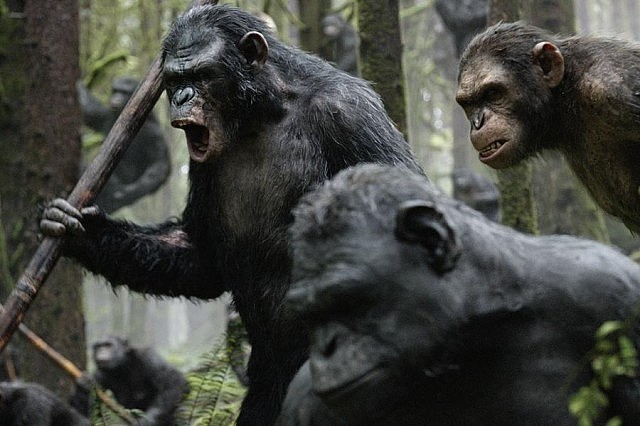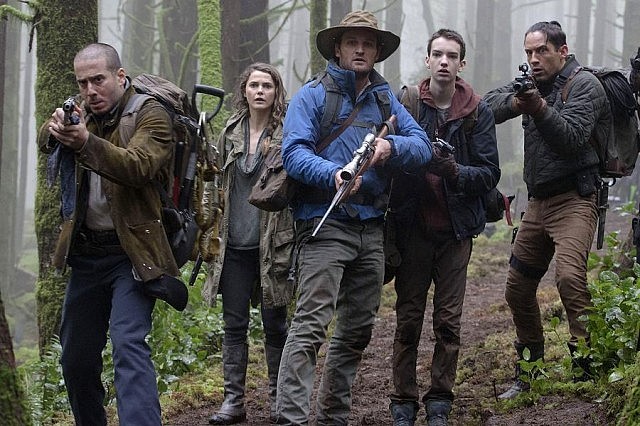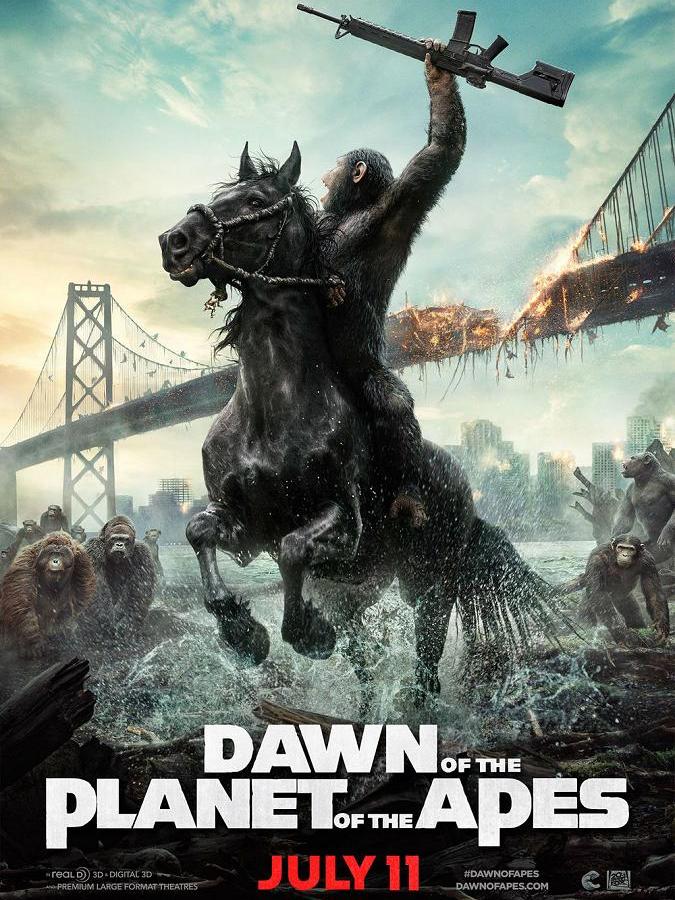In a summer that has seen unusually strong multiplex fare, Dawn of the Planet of the Apes might trump them all. It extremely successfully intertwines shattering effects with troubling and surprisingly challenging commentary on the state of our current political unrest.
Is it possible that Hollywood is actually developing a social conscience again? Literally billions of dollars are being spent not only on ensuring that your 3-D experience is optimal, but that pretty subversive accounts of marginalized experiences are being heard. It would be easy —and frankly lazy — to call this projective when these themes are so flagrant and thinly veiled.
Set 15 years after the events of the preceding (and surprisingly good) Rise of the Planet of the Apes, humanity has essentially collapsed, having been ravaged by the outbreak of the experimental ALZ-113 virus used in the cruel experiments on the more primitive apes. Originally intended as a treatment for Alzheimer’s patients, the “cure” tremendously increases the intelligence and independence of its primate subjects. Proving wildly infectious and lethal to humans, the virus imbues a one-in-five-hundred survival rate and spreads rapidly around the globe. Heavy similarities to the controversial African green monkey theory about the origins of the HIV-1 epidemic are hard to ignore and bring a lump to the throat.
This grim montage transitions to a spectacular sequence of the apes on a great deer hunt. Breathlessly swinging through the trees in a well-rendered recreation of the Redwoods, the scenario plays like an inversion of the legendary Dawn of Man opening of Kubrick’s 2001: A Space Odyssey. As one species dies, another is born. The parallels continue throughout the narrative.

With humanity decimated, the evolving apes (led by the powerful yet compassionate Caeser) establish their fledgling nation and the notions of basic civilization in the forests surrounding the ruins of San Francisco. The apes become skeptical as to whether there are humans left in the world, having not made contact with any in the last two years. A chance encounter with an expedition from a struggling human settlement (Jason Clarke and Keri Russell looking like she just stepped off the set of Felicity), who seek a hydroelectric source of power located deep within the apes’ dominion, proves disastrous and sets a simmering tension that holds you in an iron grasp for the duration of the film. The threat of violence is always immediate and tangible.

As so aptly demonstrated by the many other incarnations of this popular mythology, there is always the chance of descending into abject stupidity. Though, crucially, the script takes itself very seriously and frequently makes poignant and astute observations on the nature of leadership in a democratic versus fascistic political structure. It mercifully banishes lingering images of Tim Burton-helmed grotesqueries and the need for a serious Simpsons lampooning (“Dr. Zaius! Dr. Zaius!”).
Dawn of the Planet of the Apes Official Trailer
All photos courtesy of Twentieth Century Fox Film Corporation



























